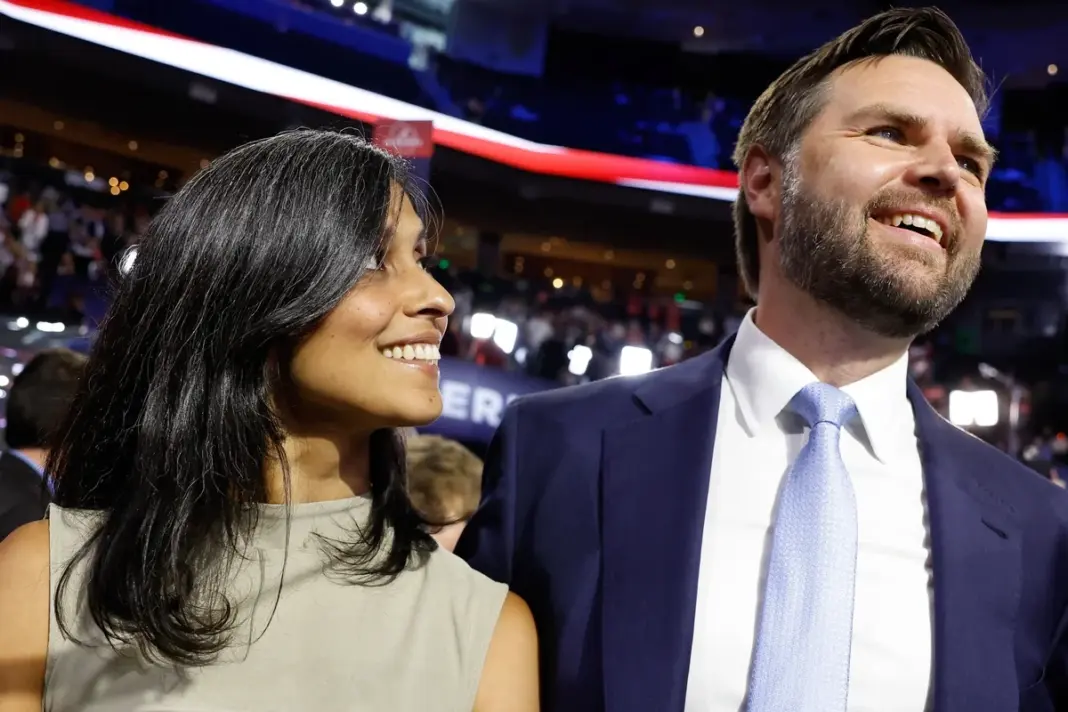A new debate has arisen regarding US Vice President JD Vance after comments he made concerning his wife’s faith sparked new conversations about faith and politics, and image-building. His statement has led many to wonder if it is a true personal sentiment or was a political signal to build up support among his conservative voter base regarding the 2028 Presidential elections.
As reported by News18, Vance recently discussed his wife, Usha Vance, who comes from a family of Hindu immigrants, and stated he “hopes she comes to see Christianity in the same sense,” and while his wife has not converted, he is “certainly happy if she ever does.” The Vice President stated their children are being raised as Christians, similar to his own upbringing as a Catholic.
Faith, Family, and Politics: The dance of special interest groups
Vance’s quotes, identified and reported by News18, took off on social media, with a mixed reaction. Some praised him for being open about his faith system, and others criticized Vance for politicizing his wife’s religious beliefs for the sake of outreach to evangelical and Christian conservative voters, an important voting bloc in Republican Politics.
DON'T MISS
This debate also provides a lens into one part of the larger debate we often see in politics in the United States: where does personal belief end, and political signaling begin?
Community Response and Awareness of Cultural Sensitivity
Social media users quickly offered many responses, including people who pointed out how “agnostic” was not an appropriate label for Usha, rather than labeling her as Hindu. “Your wife is not agnostic, she is Hindu,” wrote one of Vance’s critics on X, suggesting that it was important to call her a “Hindu” with implications of respectful cultural discourse.
Vance, who converted to Catholicism in 2019, has previously been outspoken about the impact of faith on his perspective. Still, his latest statements reflect how people’s personal beliefs can become politically weaponized when generally believed religious identities are a core component of voter identity in American politics.
Looking Towards 2028
Political analysts believe this will not die out quickly. For some, Vance’s statements represent a strategic and intentional effort to move toward more Christian conservative voters – an influential and important voting demographic if he decides to pursue the presidency in 2028.
Essentially, whether Vance’s comments came from faith or political foresight-we cannot know—but some lessons are already learned. JD Vance’s family life has once again woven itself into political discussions, blending the personal and political for what could influence future endeavors.



